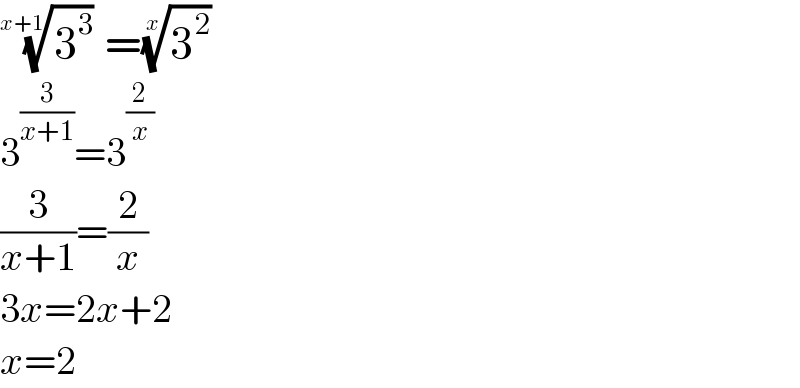Question Number 160296 by mathlove last updated on 27/Nov/21

Commented by bobhans last updated on 27/Nov/21

$$\:\:\:\:\:\:\:\:\:\:\left(\mathrm{3}\right)^{\frac{\mathrm{3}}{\mathrm{x}+\mathrm{1}}} \:=\:\left(\mathrm{3}\right)^{\frac{\mathrm{2}}{\mathrm{x}}} \:\Leftrightarrow\:\mathrm{3x}=\mathrm{2x}+\mathrm{2}\:;\:\mathrm{x}=\mathrm{2} \\ $$
Answered by Rasheed.Sindhi last updated on 27/Nov/21

$$\sqrt[{{x}+\mathrm{1}}]{\mathrm{3}^{\mathrm{3}} }\:=\sqrt[{{x}}]{\mathrm{3}^{\mathrm{2}} }\: \\ $$$$\mathrm{3}^{\frac{\mathrm{3}}{{x}+\mathrm{1}}} =\mathrm{3}^{\frac{\mathrm{2}}{{x}}} \\ $$$$\frac{\mathrm{3}}{{x}+\mathrm{1}}=\frac{\mathrm{2}}{{x}} \\ $$$$\mathrm{3}{x}=\mathrm{2}{x}+\mathrm{2} \\ $$$${x}=\mathrm{2} \\ $$
